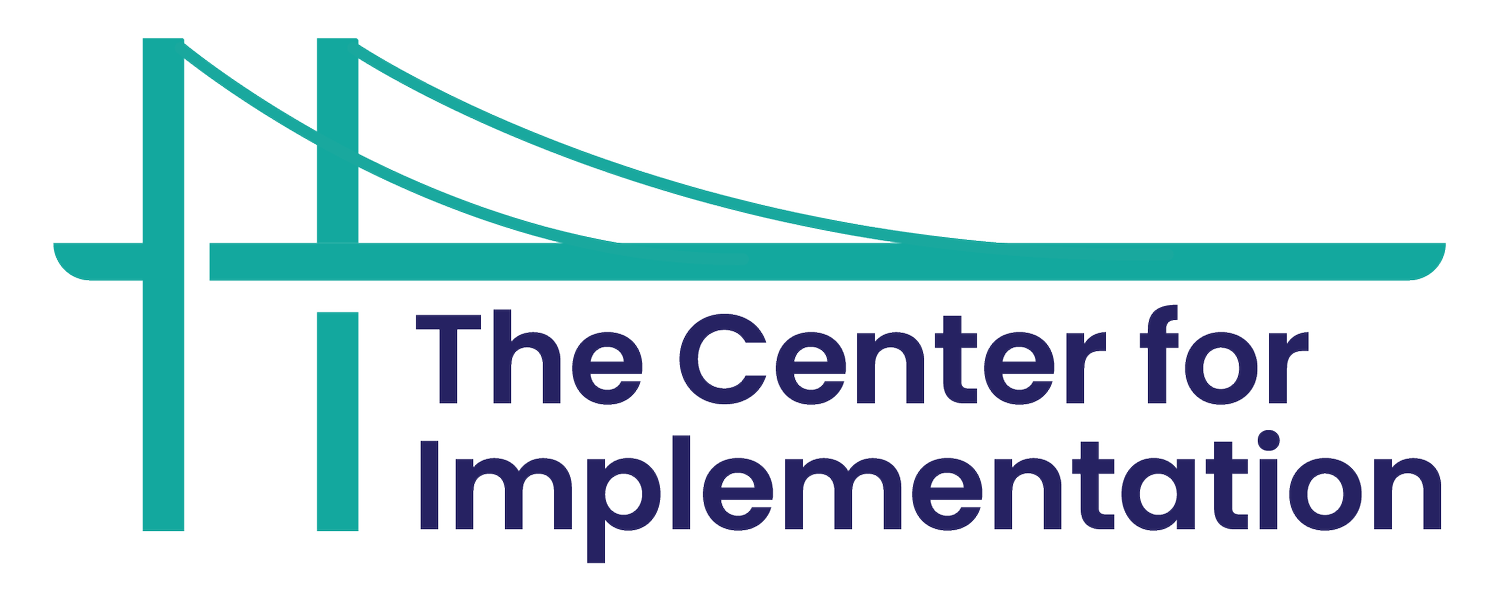The 5 Functions of an Implementation Support Specialist
By Dr. Julia E. Moore, Executive Director
4-min read
We have been seeing a lot of demand for implementation support practitioners lately. There are job postings at all levels (e.g., from junior positions up to director-level positions). These professionals are key players in helping organizations, communities, and systems implement programs and practices effectively. As the demand for implementation support roles grows, it is important to understand the core functions that define this role and how these functions contribute to successful implementation.
This year, we created an updated list of implementation support practitioner competencies. In the process of updating these competencies, it became clear that we not only need to understand the knowledge and skills that implementation support practitioners need, but we also need to understand the functions that they serve.
Implementation support practitioner functions
The functions describe the essence and attributes of the role and the purpose of implementation support. They are the ways in which implementation support practitioners enact and support implementation and become proficient at many of the knowledge and skill sets in the implementation support core competencies. These functions are not discrete; they mutually reinforce one another, so there is conceptual overlap between them.
There are five functions of an implementation support practitioner: connect, understand, inspire, enable, and transform.
1. Connect: Building and Sustaining Relationships
At the heart of the implementation support practitioner’s role is the ability to connect and facilitate effective collaboration between all individuals involved in the implementation process. This function is rooted in the understanding that relationships are fundamental to the success of any implementation effort. Implementation support practitioners work to identify those involved in and affected by the change, bring them together, and foster an environment of trust and collaboration.
Building these connections goes beyond mere networking; it involves creating safe spaces for dialogue, encouraging the sharing of ideas, and addressing any power imbalances that may exist. By fostering strong relationships, implementation support practitioners help ensure that everyone involved in the implementation process is aligned and working towards common goals.
2. Understand: Promoting Deep Comprehension
The second core function, understand, involves promoting a deep comprehension of diverse perspectives and co-creating a shared understanding of the problems and solutions within an implementation project. Implementation support practitioners play a critical role in unearthing different viewpoints, facilitating collective sensemaking, and ensuring that all voices are heard and respected.
This function is particularly important in complex situations where multiple perspectives and power dynamics are involved. By promoting shared understanding, implementation support practitioners help teams navigate these complexities and develop adaptive solutions informed by a broad range of experiences and expertise.
3. Inspire: Motivating and Influencing Change
Another essential function of an Implementation Support Specialist is the ability to inspire. This involves motivating and influencing the implementation team, cultivating champions for the cause, and fostering leadership behaviors across all levels of an organization. Implementation support practitioners serve as both cheerleaders and strategists, helping to keep momentum going even in the face of setbacks.
Inspiration is not just about encouraging words; it’s about affirming the strengths of the team, recognizing achievements, and creating a sense of ownership over the implementation process. By inspiring those around them, implementation support practitioners help build the resilience and determination needed to see a project through to successful completion.
4. Enable: Removing Obstacles and Building Capacity
To enable means to identify and remove obstacles that may hinder progress, leverage resources effectively, and build the capacity of implementation teams. Implementation support practitioners work closely with teams to create the right conditions for change, ensuring that everyone involved has the tools, knowledge, and support they need to succeed.
This function also involves enabling a sense of agency among team members, encouraging them to take ownership of the implementation process. By building capacity and fostering an environment where change can thrive, implementation support practitioners help to pave the way for sustainable and effective implementation.
5. Transform: Supporting Adaptation and Growth
The final core function, transform, is very introspective. It involves adapting to challenges and managing the uncertainties that inevitably arise during the implementation process. Implementation support practitioners are reflective practitioners who continuously assess their contributions and the overall progress of the implementation effort.
Transformation is about more than just solving immediate problems; it’s about fostering agility and resilience in the face of ongoing change. Implementation support practitioners help teams navigate complex, system-level challenges, encouraging them to remain adaptable and to view setbacks as opportunities for growth and learning.
Conclusion
The five functions of an implementation support practitioner —Connect, Understand, Inspire, Enable, and Transform—are interrelated and mutually reinforcing. Together, they define the scope of this important role and highlight the unique contributions that implementation support practitioners make to the field of implementation science.
To help implementation support practitioners better understand and fulfil these functions, we developed an online course, Hidden Curriculum: Igniting Change From the Middle, which unpacks each function in detail. By mastering these functions, implementation support practitioners can effectively support teams through every stage of the implementation process, ensuring that change is not only possible but sustainable.
These functions also provide a framework for understanding the role of implementation support practitioners and offer valuable guidance for organizations looking to hire or develop implementation support practitioners.
As the demand for skilled implementation support continues to grow, these functions will play a crucial role in shaping the future of implementation practice.
This article was featured in our monthly Implementation in Action bulletin! Want to receive our next issue? Subscribe here.

